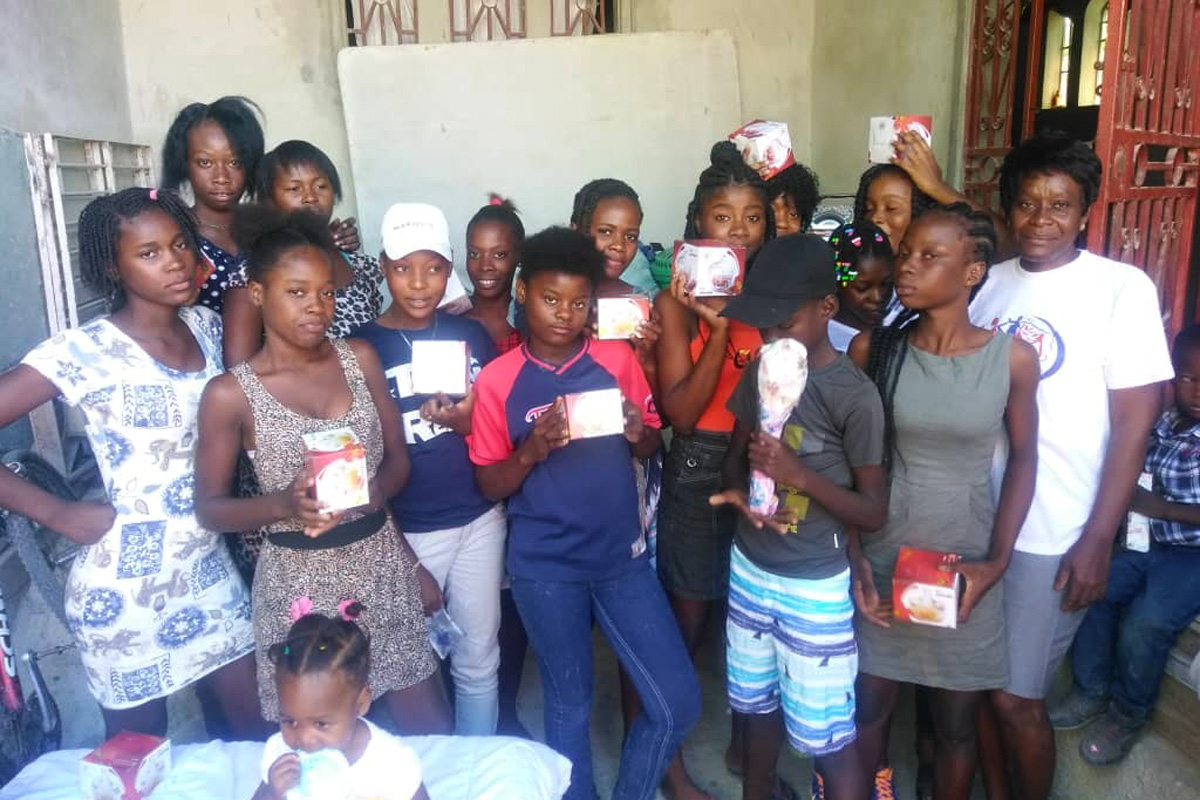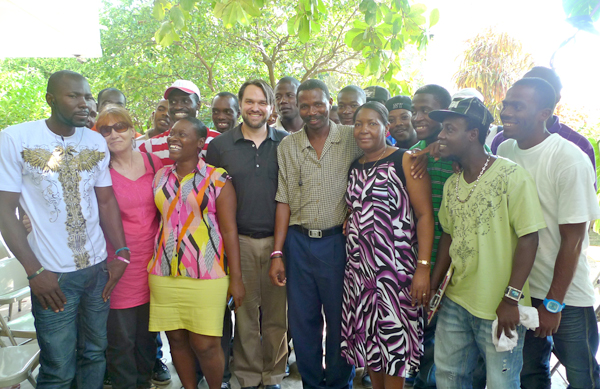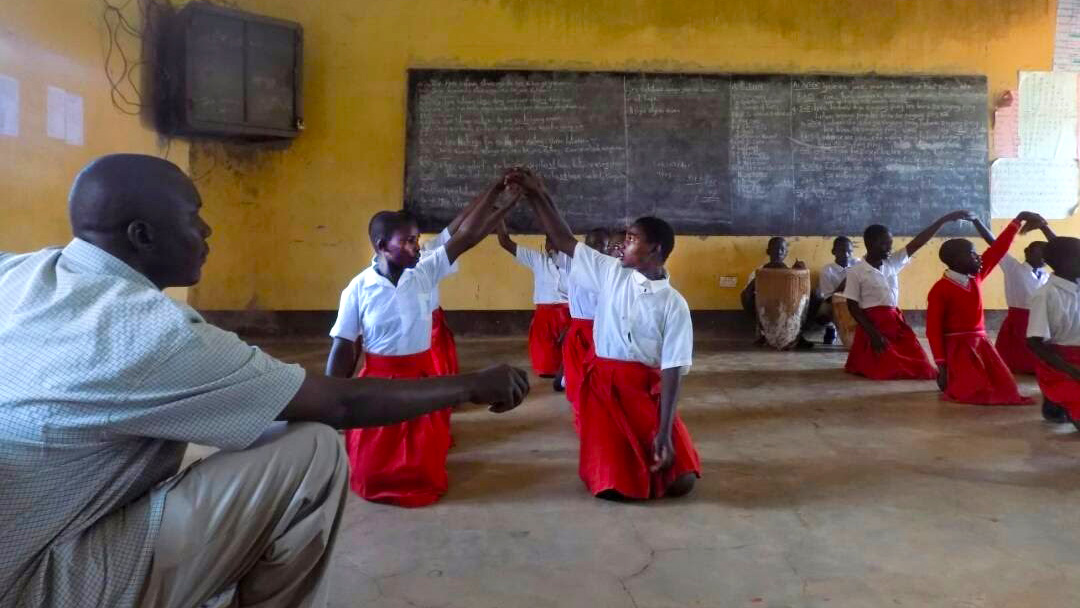This journey I have been on for the last four years has seen real moments of me finding my voice, my inner power, shedding insecurities and finding my brave. It is a journey that has and is still changing my life.
It is March 2014, and I am at the Sexual Assault Awareness Month kickoff. Legislators, reporters, state elected officials, advocates, and constituents filled the Kentucky Capitol rotunda. The building was such a powerful yet beautiful space. Marbled steps led to the second and third floors with soapstone handrails. Pictures of past elected officials and the Commonwealth of Kentucky countryside adorned the hallways. The ceiling lined with beautiful windows with colored stained glass.
Legislators walked up to a podium with an oversized sign behind it saying "Sexual Assault Awareness Month" in bold teal letters. They spoke about bills and policies they were passionate about sponsoring. Confidence, dedication and passion filled the air of the room surrounding the tall bronze statue of Abraham Lincoln that sat powerfully in the middle. I was so furious, but intrigued by a resolution sponsored by state Senator Denise Harper-Angel and spoke about implementing a mandatory audit of the rape kits that were sitting untested and un-submitted in Kentucky. She was passionate, gracious and kind. Her fiery red, pixie-cut hair matched her attitude well. The executive director of the Kentucky Sexual Assault Coalition, Eileen Recktenwald, introduced me to the senator.
Her stature was feminine and petite, but the senator's power and importance revealed itself as she spoke. I knew at that very moment that I was in a space that was life-changing for me. The senator changed the way I viewed legislation. I now saw an opportunity to use a horrific crime that happened to me so long ago and "reframe it."
I wanted to help Senator Angel obtain the votes she needed and sent out letters to all our legislators to help her to obtain them.
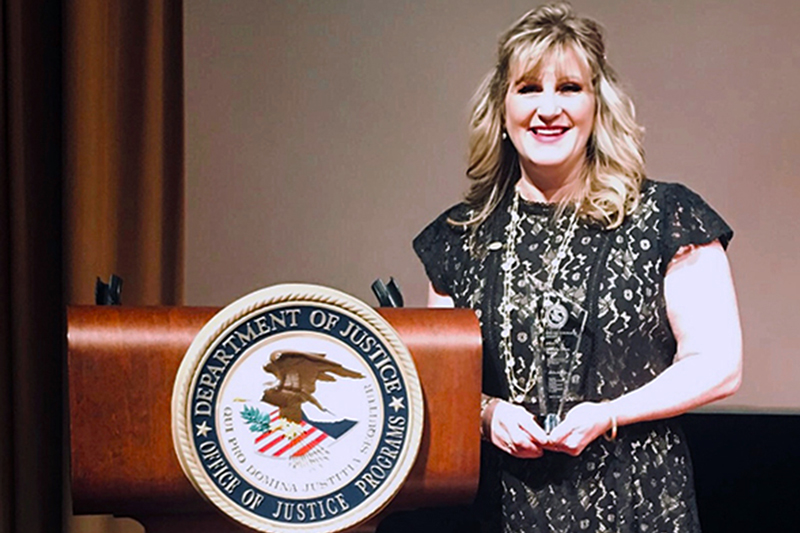
For almost 20 years, I didn’t talk about my truth. I was only four weeks into my freshman year in 1994, a time where most people did not have cell phones or computers in most homes. My dad left a message that my childhood dog was dying. He felt that Buffy was waiting for me and wondered if I could drive up the next morning. I was upset and understandably needed some air. I took a bag of cookies and a glass of milk to the front porch of my home. I lived in a tall and slender victorian home in Cherokee Park, which is still named one of the three best places to live in Louisville, KY.
The late summer warm breeze felt good on my face. I thought of the good old times with Buffy and how much I will miss him. Something told me to go in and it was as vivid as if someone where talking to me. I told myself, ‘Just a few minutes more. The air feels so nice.’ Within seconds, I felt like I was falling. My feet hit the ground below and I heard a voice in the back of my neck and it was at that moment I knew someone had me with force. A stranger committed a list of crimes with me that night. He also found me again the next semester by calling me at my new apartment that was all in my dad’s name and on the other end of town. He said he could always find me. This instilled a fear in me that he could be anywhere and everywhere all at once.
I lived two decades not telling many people or talking about it. I gave up that he would be caught and felt like it happened to my body and not my soul. By keeping what happened to me at a distance, it was easier for me to go on with life.
My offender's sentencing to 33 years in prison made me feel safe enough to come forward and start speaking out for survivors publicly. In 2014, I signed up for the White House initiative It’s On Us and volunteered with the University of Louisville’s Prevent Educate Advocate on Campus and Community (PEACC) program. PEACC Director Sally Evans was excellent. She encouraged me to volunteer and speak at campus events. I then met Eileen Recktenwald, executive director of the Kentucky Association of Sexual Assault Programs (KASAP) and a 30-year advocate. She is 64 years old with raven black hair and the smoothest complexion I have ever seen. Eileen was nurturing and empowered me to believe in myself, learn about boundaries, and how no one else but me is in control of my truth. She gave me the tools to become the advocate I am today and has never made me feel like a victim. I am where I am now due to the support she and so many others gave me.
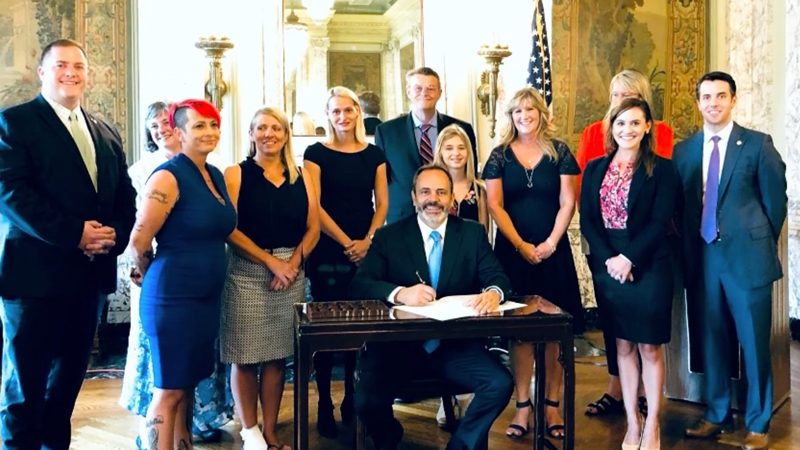
After gaining confidence and support through my volunteering work, I started writing to legislators. Before getting involved in this, I knew nothing about legislation or the legislative process, but I did have my truth. I have always written in journals, so during my quiet breaks, while working as a nanny, I decided to write down my truth. I had heard about how contacting your own elected officials is the place to start, so that’s what I did. I used Google to find out who my legislators were and to find their contact information. I was very nervous my first time sending a letter to my legislator, Kentucky State Senator Julie Raque Adams. I was sharing something so intimate with somebody else, so I was worried about how legislators would perceive my letter, especially knowing how many people still engage in survivor-shaming.
I received notes from legislators thanking me and saying they were sorry for what happened to me so long ago, but wanted me to know that they supported Senator Angel's bill. I remember crying in gratitude because these senators acknowledged me and the pain I had suffered. These legislators were now going to use their power to create change, and that was the moment of empowerment for me. I saw that I could help change laws and hopefully help to prevent crimes or allow people victimized by crimes to have access to a more balanced justice system. By helping to create much-needed change, I began to feel empowerment I had never felt before.
My mind was racing and my heart was pounding with excitement for future generations. These new policies and laws would not save me from the pain I experienced, but they would help people victimized by crimes and their loved ones for generations to come.
In 2016, then-Auditor Adam Edelen asked me to speak at a press conference he was holding about Resolution 20. He was passionate about implementing the resolution, which required his office to audit the untested sexual assault kits in the state. At first, I didn’t understand the terms “backlog,” “untested” and “un-submitted,” but I learned them as I advocated for reform. I then started speaking at more events. I went to counties around Kentucky for stakeholder meetings to talk about why testing all sexual assault kits is essential to me. Through my growing network, I was introduced to more advocates, such as Ilse Knecht with JoyfulHeartfoundation.org, who helps to end the backlog around the globe, and Jayann Sepich from DNASaves.org, who helped pass legislation requiring the collection of DNA upon arrest for felony crimes in New Mexico and 32 other states. She is an incredible, courageous advocate, and I was proud to partner with her to advocate and testify in Indiana for DNA legislation passed into law and similar legislation which still needs to pass in Kentucky.
Advocacy has been a journey for me, and I have learned from everyone I have met along the way. I would not be where I am today if not for the unique relationships I have made and so many people willing to lift me up and share their podium with me in hopes I may be able to pay it forward.
I returned to college to reclaim an education that was stolen from me so long ago. This is my junior year in college and my hope is to secure a career where I may continue to help others rise above the crime that happened to them and rise above their fears by connecting them to the people who can help them in their journey. These last few years, I have learned how to build bridges to bring people together for better policies, awareness, education and laws.
Last year, I worked on a bill with Kentucky Senator Julie Raque Adams and we changed what constitutes rape and sodomy in Kentucky. I try to uplift others who were victimized by crime so they may rise.
With every stroke of a pen to a legislator, every call I make to support or oppose a bill, every time I speak out, testify for change in legislation, help a survivor, overcome my fears, go into my community and spread awareness and education, my offender loses his power over me.
When people use their position and power to help others and help women climb, we are building stronger communities so she will rise.
